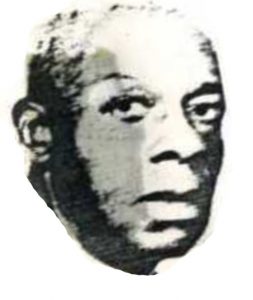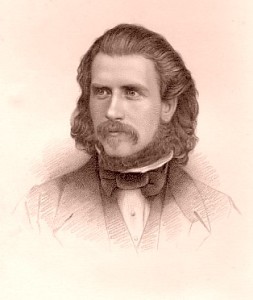Timaeus
Roy, Loys le
Loys(Louis) le Roy (1510-1577) was a French humanist, historian and professor of Greek. He translated some of the works of Plato and Aristotle including the first translation of Timaeus in French, published in 1551[1463].
Philolaus
 Philolaus (5th cent. BC) was a Greek philosopher, probably from Croton in southern Italy. The available fragments of his writings have shown similarities with Plato’s Timaeus, [*although there is no suggestion that these relate to any of the Atlantis narrative.]*
Philolaus (5th cent. BC) was a Greek philosopher, probably from Croton in southern Italy. The available fragments of his writings have shown similarities with Plato’s Timaeus, [*although there is no suggestion that these relate to any of the Atlantis narrative.]*
Hermippus of Smyrna (3rd cent. BC) claimed that Plato copied Philolaus’ work, a suggestion debated into modern times(a).
James, George G.M. *
George G. M. James (1893-1956) a professor of ancient Greek, was born in British Guiana and lectured at a number of North American universities. He gained widespread notoriety with his 1954 book,  Stolen Legacy(a), in which he claimed that “the term Greek philosophy is in fact wrong because there is no such philosophy. The Greeks did not have the natural ability necessary for the development of philosophy. The Greek philosophy was not invented by Greeks but by the Blacks of Northern Africa, the Egyptians”. His ‘chip-on-the-shoulder’ Afrocentrism pervades his book, often sinking into downright racism. A sceptic’s view of James’ claims gives some balance to the debate(b).
Stolen Legacy(a), in which he claimed that “the term Greek philosophy is in fact wrong because there is no such philosophy. The Greeks did not have the natural ability necessary for the development of philosophy. The Greek philosophy was not invented by Greeks but by the Blacks of Northern Africa, the Egyptians”. His ‘chip-on-the-shoulder’ Afrocentrism pervades his book, often sinking into downright racism. A sceptic’s view of James’ claims gives some balance to the debate(b).
Our interest in James stems from his claim[858.109] that both Republic and Timaeus were stolen by Plato and quotes the 3rd century AD biographer, Diogenes Laërtius (8.85), in support of his contention. Although he touches on the authorship of Timaeus he does not refer to the Atlantis passages.
James’ unorthodoxy is not confined to a criticism of the origins of Greek philosophy, but elsewhere claims that the pyramids were built around 10,000 BC, predating the claims of Graham Hancock and Robert Bauval by decades.
(a) (99+) Stolen Legacy | karahbura nebjari – Academia.edu *
Whitaker, Robert Harold
Cornford, Francis MacDonald
Francis Macdonald Cornford (1874-1943) was an English classical scholar and a Professor of Ancient Philosophy at Cambridge, who published a number of books on his subject.
Philosophy at Cambridge, who published a number of books on his subject.
In 1935, he published a translation of Plato’s Timaeus including a commentary with the full title of Plato’s Cosmology: The Timaeus of Plato Translated with a Running Commentary[852]+.
Cornford was a confirmed Atlantis sceptic, remarking that “serious scholars now agree that Atlantis probably owed its existence entirely to Plato’s imagination.”
Kessinger Publishing issued a reprint of his commentary as recently as 2005.
[852]+ https://juanfermejia.files.wordpress.com/2012/02/platos-cosmology.pdf *
Digby 23
Digby 23 is the name given to a manuscript in Oxford’s Bodleian Library that was bequeathed to Osney Abbey, near Oxford, by Master Henry of Langely (died circa 1263).
This 12th century document contains The Song of Roland (La Chanson de Roland) as well as a copy of the Latin translation of Plato’s Timaeus by Chalcidius. Now the Digby 23 Project makes the entire codex available on line(a) and should be most useful to serious researchers.
(a) https://medieval.bodleian.ox.ac.uk/catalog/manuscript_4352?os=&pgs=50&sort=Shelfmark%
English Translations (L)
English Translations of Plato’s Timaeus and Critias have been freely available since 1793 when Thomas Taylor produced his translation.
In 1804 Taylor published the first English translation of the entire Platonic corpus. In 1871, Benjamin Jowett produced the most commonly quoted version of the Atlantis Dialogues, principally because his work is now out of copyright. Henry Davis produced a translation of Critias in the 19th century and John Alexander Stewart also offered a translation of Critias early in the 20th century.
1925 saw W.R.M. Lamb publish a translation of some of Plato’s works and today his rendering of both Timaeus and Critias is used by the Perseus Digital Library(a). In 1929, Lewis Spence included a composite version of the Atlantis texts in The History of Atlantis, using the English translations of Jowett and Archer-Hind for Timaeus and the French translations of Jolibois and Negris for Critias. Rev. R. G. Bury gave us what was arguably the best translation of the Dialogues (Loeb Classical Library, 1929) and is included at the beginning of this book. Francis M. Cornford (1874-1943) published his Timaeus (Bobbs-Merrill, 1937)
Sir Desmond Lee produced a new English translation in 1972 (Penguin)
Professor Diskin Clay delivered an acclaimed translation of Critias (Hackett Publishing, 1997). Professor Donald J. Zeyl offered a new translation of Timaeus (Hackett Publishing, 2000). Dr. Peter Kalkavage published a highly regarded translation of Timaeus (Focus Philosophical Library, 2001).
In 2008, Robin Waterfield offered a new translation of Critias and Timaeus[0922] as well as a revision of Desmond Lee’s translation of them by Thomas Kjeller Johansen.
Timaeus (historian)
Timaeus (c. 345 – c. 250 BC) was a Greek historian, born in Tauromenium, Sicily. After migrating to Athens he wrote an extensive work, The Histories, thought to consist of 40 volumes. He introduced the method of noting dates by Olympiads. Only fragments of his output still exist. Zhirov notes[0458.40] that Cosmas Indicopleustes quotes Timaeus recounting that the first ten kings of Chaldea came from the island of Atlantis, although Timaeus does not give his source.
>Timaeus of Tauromenium, who was born about 20 years before Plato died, is not the Timaeus referred to in the Dialogue of the same name. This Timaeus was a noted historian, who among others, was heavily relied on by Diodorus Siculus(a).<
(a) https://www.academia.edu/32364554/Diodorus_use_of_Timaeus *
Massey, Gerald
 Gerald Massey (1828-1907) was an English poet and self-taught Egyptologist. One result of his studies was to identify the Egyptian god Horus with Jesus. On the subject of Atlantis, Massey claimed that sun-worshipping Atlanteans migrated to Egypt but failed to identify their place of origin. His huge work on ancient Egypt, Ancient Egypt: The Light of the World[1515], is widely available.
Gerald Massey (1828-1907) was an English poet and self-taught Egyptologist. One result of his studies was to identify the Egyptian god Horus with Jesus. On the subject of Atlantis, Massey claimed that sun-worshipping Atlanteans migrated to Egypt but failed to identify their place of origin. His huge work on ancient Egypt, Ancient Egypt: The Light of the World[1515], is widely available.
>His other major work was A Book of the Beginnings [1929] with an introduction by Leslie Shepard.<
There are extensive websites(a)(b) dealing with his work and his sources(c), which include Thomas Taylor’s translation of Plato’s Critias and Timaeus as well as Proclus’ commentary on Timaeus.
(a) See: https://web.archive.org/web/20170618062721/https://www.masseiana.org/intro.htm
(b) See: https://web.archive.org/web/20190327231447/https://gerald-massey.org.uk/massey/index.htm
(c) Introduction to the Works of Massey (archive.org) *
